
If you found the information in this book valuable, youll be interested to know that cassette tapes by Eric Morris are now available. These 90-minute audio tapes were recorded live at actual workshops and seminars conducted by Mr. Morris and are ideal for use in conjunction with his books, No Acting Please, Being and Doing, Irreverent Acting and Acting from the Ultimate Consciousness. The tapes are offered in two series. The Craft of Acting and The Megapproaches.
To receive the first tape in The Craft of Acting series plus a full information brochure, send your check for S9.95 plus S1.00 for postage and handling to:
Ermor Enterprises
8004 Fareholm Drive
Los Angeles. CA 90046
Money refunded if not satisfied.
1

CONSCIOUSNESS
 The first thought I had after titling this book was that the title sounded somewhat esoteric. The work is extremely pragmatic and does not border on the mystical or the parapsychological. The ultimate consciousness is just a term I use to describe a phenomenonwhich I will get into laterwherein unconscious impulses are being communicated to or fed into conscious behavior.
The first thought I had after titling this book was that the title sounded somewhat esoteric. The work is extremely pragmatic and does not border on the mystical or the parapsychological. The ultimate consciousness is just a term I use to describe a phenomenonwhich I will get into laterwherein unconscious impulses are being communicated to or fed into conscious behavior.
BEING, IRREVERENCE,
AND THE ULTIMATE CONSCIOUSNESS
The three stages of BEING , irreverence, and ultimate consciousness form a chronological chain of interrelating behavioral states, which hopefully set up a foundation for reaching an exciting level of theatrical life that is being supported by the purity of unconscious impulses.
BEING which is explored in great detail in my other book. Irreverent Actingis a state wherein the actor is in touch with everything he feels, on a moment-to-moment basis. He is experiencing a truthful flow of impulses, which he expresses freely, and is comfortable doing no more or less than what he feels. This state is the prerequisite to an organic creative process and must be reached before the actor can take the next step.
There are a great number of techniques for getting to a BEING state, but in addition to the work that he must do systematically to arrive there, the actor must also progressively encourage a growing consciousness toward BEING in his life. The BEING state is a place of truth, from which the actor can stimulate the truth of the character in the piece. On the creative journey, while exploring the choices that will fulfill the various obligations of the piece, the actor is irreverent to the material, expressing all the impulses stimulated by his choices while attempting to find the yellow brick road to the fulfillment of the piece. This irreverent state is a must if the actor is to service the piece organically. If he then establishes a BEING state, and from there is totally irreverent in the exploration of his choicesprovided that they are intelligent and dimensionalhe may hope for some contact with the unconscious, which will affect his conscious behavior in the scene and thereby enable him to achieve an ultimate-consciousness state.
Before I define the concept of the ultimate consciousness, lets talk about consciousness: What is it? Where does it come from? And are you born with it?
Everybody is born with consciousness, but the level to which we develop it is entirely dependent on our upbringing and our exposure. Some people are born to parents who are already aware and who transfer that awareness to their children, who, in turn, go further in their own quest for consciousness. Other people develop the component parts of consciousness on their own. Whatever stimulates curiosity in a child, whatever it is that makes a person look more deeply into the eyes of another, whatever makes one ask questions and seek knowledgethese are the elements which help develop consciousness. Like a muscle in the body, consciousness is developed and exercised. Once the awareness is piqued, a hunger to stretch the consciousness is created.
THE COMPONENTS OF CONSCIOUSNESS
No doubt you have all seen people who seem totally unaware of what is going on around them: they stand in a pathway oblivious to anyone wanting to pass or so close to you that you can feel their body heat, or they sit there eating lunch as if in some faraway world of their own, and so on. It makes you wonder what causes such insulation and lack of awareness. Besides the fact that these people can be a nuisance, the more important reality is that they miss experiencing life and the world around them! Was it fear, insecurity, or shyness that caused such withdrawal in the first place? Whatever it was, it can be a lifelong liability.
To the actors creativity it can be fatal! Besides needing to be aware of the world around him, the actor must also be fed by external and internal stimuli, which constitute the foundation of the impulses which shape his behavior in a scene. Therefore it is mandatory that the actor be highly conscious and accessible to the objects in the world around him.
Consciousness is made up, in part, of curiosity, sensitivity, awareness, perception, interest, and a feeling for life itself. The desire to experience, to know, or to find out about things stimulates consciousness. Where do these qualities come from, and how are they created?
Usually they are born in childhood, particularly if they are encouraged. Parents, teachers, peer groups can encourage or stifle curiosity. It can become a subject of ridicule to be too curious or sensitive. The free schools around the world are famous for encouraging consciousness and individuality. The public schools, on the other hand, are more interested in maintaining discipline than in opening the mind. Education, particularly on the higher levels, encourages the use of the mind and stimulates curiosity as well.
As his consciousness is expanded, the person (actor) begins to communicate with the world and himself on a greater number of levels. He acquires an awareness of his own body and its state of health, as well as a growing knowledge of how he feels, not only in the moment but also about an infinite number of things and people he comes into contact with. This elevation of consciousness forms the bridge to the unconscious. The more open and available the actor is to conscious stimuli, the more accessible he becomes to the flow of unconscious impulses and signals. Therefore, expanding ones consciousness is necessary not only in order to be affected by the impact of internal and external stimuli, but also to create the opening through which communication from the unconscious can occur. It is this unconscious communication which yields the most exciting life on the stage. The truly inspired moments that an actor experiences come from the unconscious well of his being.
Since one cannot usually communicate consciously and directly with the unconscious, it is important to establish some other kind of communication with it and to encourage a conscious openness for unconscious impulses to flow into behavior. There are a number of exercises and techniques for establishing such communication, and we will explore them later in the chapter on the ultimate consciousness.
HOW TO DEVELOP CONSCIOUSNESS
After you have identified what consciousness is, what being a conscious person means, the next step is to break down the elements or qualities of consciousness and to begin working on creating these elements and expanding the already existing talents you have for consciousness.
Next page
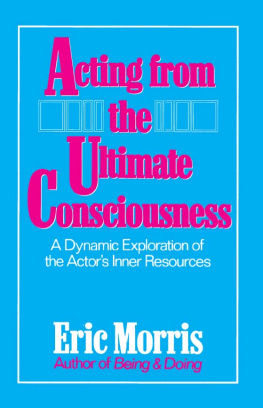

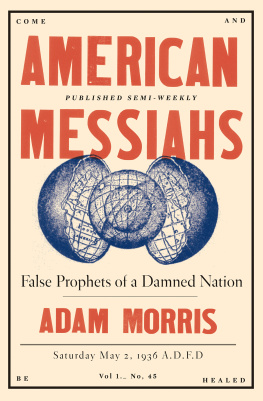
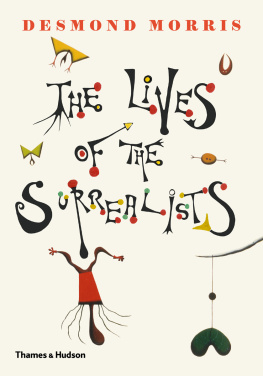



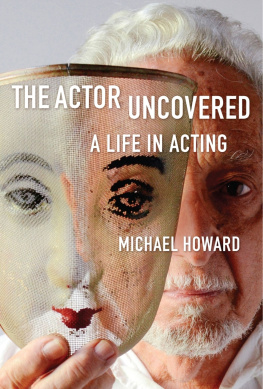
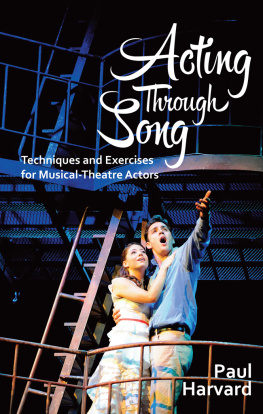

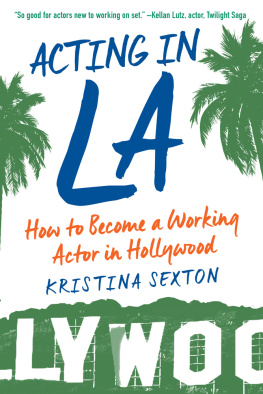
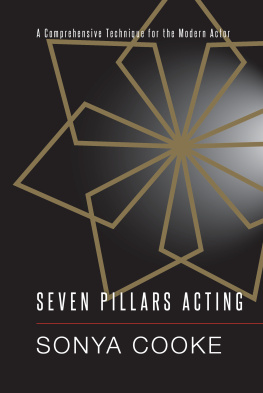
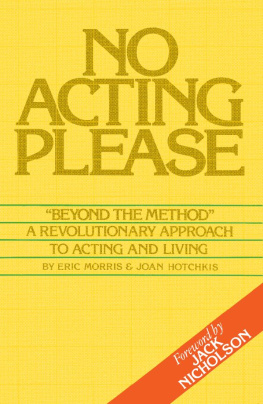

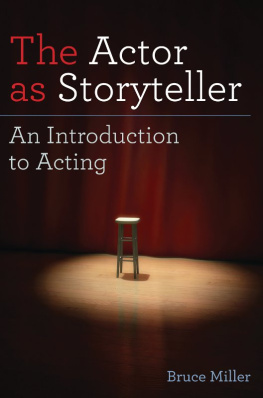
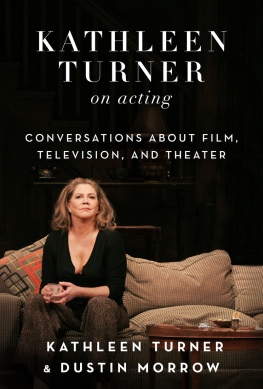
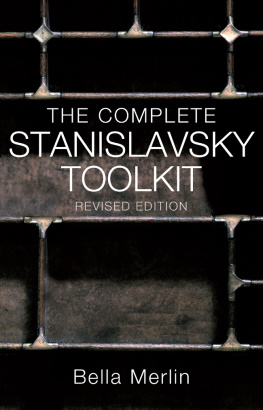
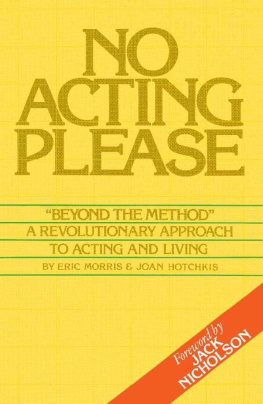


 The first thought I had after titling this book was that the title sounded somewhat esoteric. The work is extremely pragmatic and does not border on the mystical or the parapsychological. The ultimate consciousness is just a term I use to describe a phenomenonwhich I will get into laterwherein unconscious impulses are being communicated to or fed into conscious behavior.
The first thought I had after titling this book was that the title sounded somewhat esoteric. The work is extremely pragmatic and does not border on the mystical or the parapsychological. The ultimate consciousness is just a term I use to describe a phenomenonwhich I will get into laterwherein unconscious impulses are being communicated to or fed into conscious behavior.